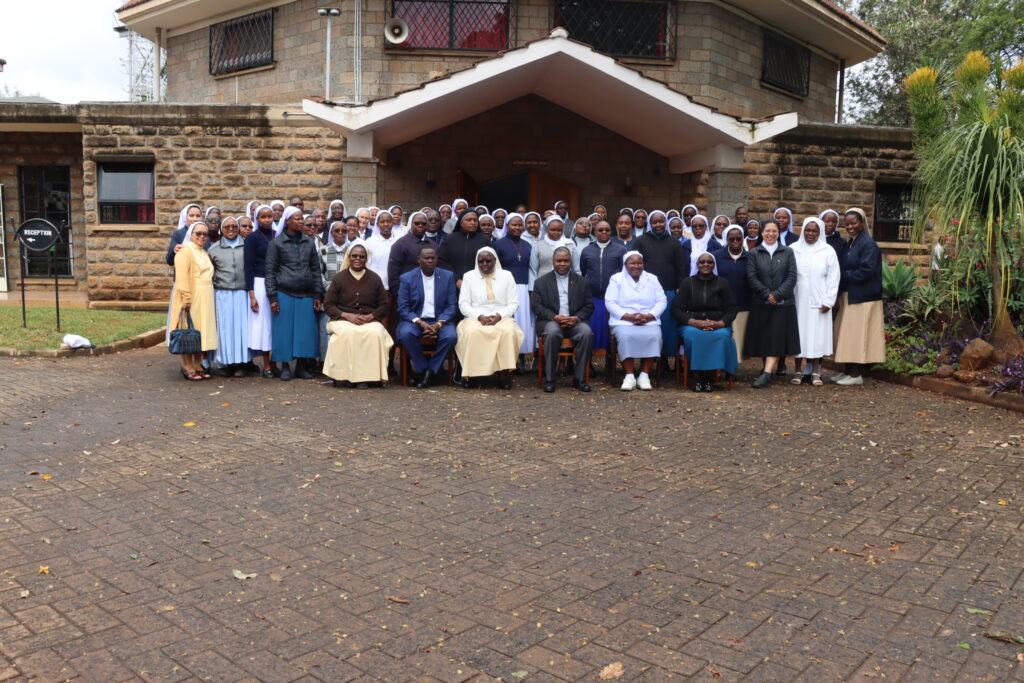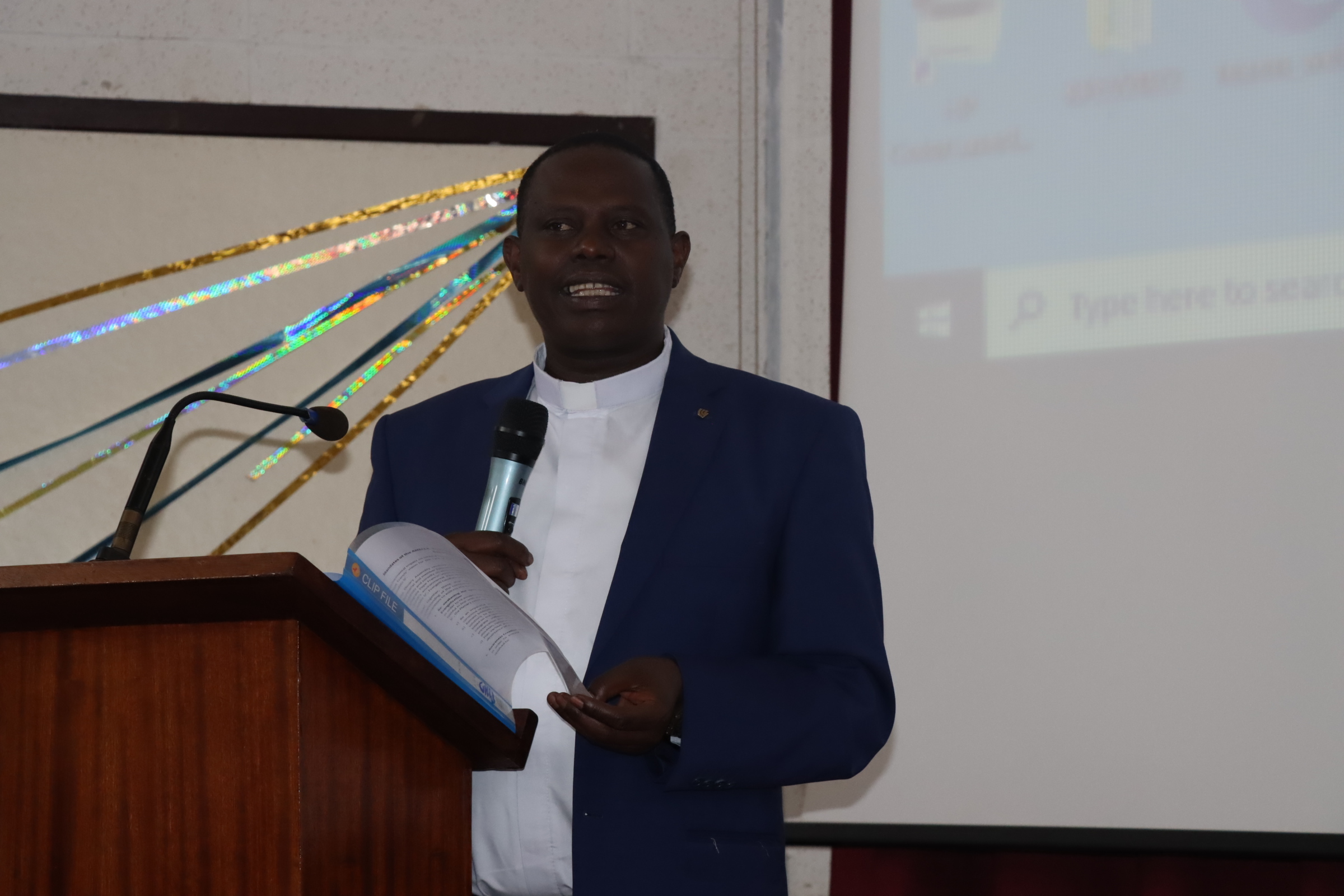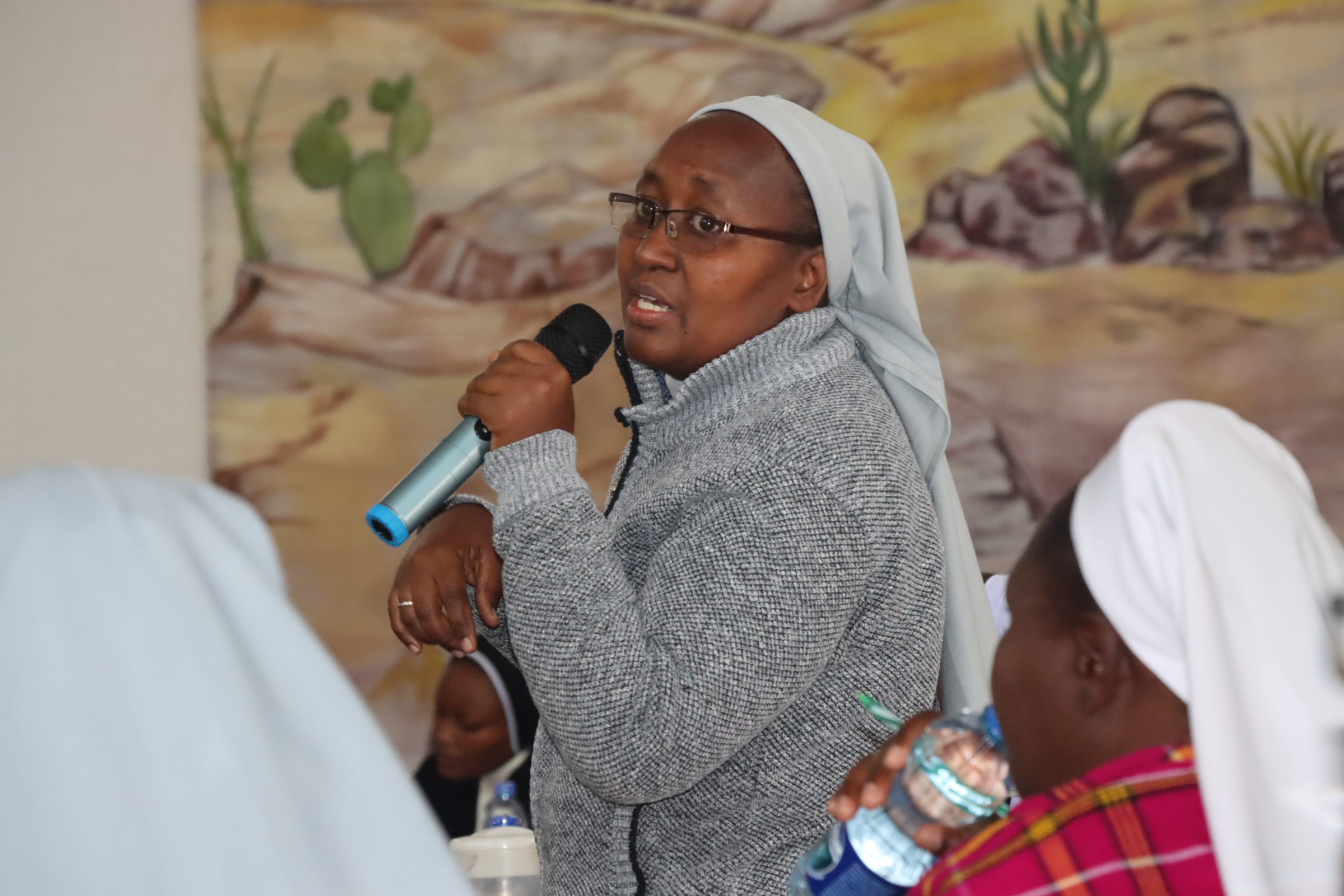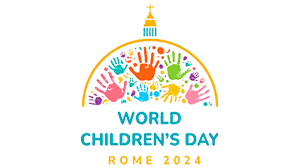AMECEA: Women, Key Instruments in Care for Creation: PHID Coordinator to AOSK Members

AMECEA in collaboration with Religious Women during Annual General Meeting of AOSK members
Sr. Jecinter Antoinette Okoth, FSSA
A Kenyan cleric has reminded members of the Association Of Sisterhoods of Kenya (AOSK) of their significance in caring for creation and the need to make alive Pope Francis’ Encyclical Letter Laudato Si’, which stresses keen attention to the natural environment and interconnectedness of humanity and all God’s creatures.
AOSK is an umbrella body for consecrated women in Kenya and an ecclesiastical organization of pontifical rights, which directly relates to the Holy See under the Congregation for the Institutes of Consecrated Life and Societies of Apostolic Life, (CICLSAL) that oversees issues related to religious life worldwide.
In his message to the Religious women who were attending the Annual General Meeting (AGM) at Dimesse Retreat Centre in Nairobi, Fr. Paul Mung’athia Igweta the AMECEA’s coordinator for Promoting Integral Human Development (PIHD) pointed out that, “When women are educated and empowered, there is better environmental outcomes.”
Following Pope Francis’ address on International Women’s Day on 8 March 2019, women make the world more beautiful, they protect it and keep it alive. Additionally, in the preface for the book “More Women’s Leadership for a Better World: Caring as the Engine for Our Common Home,” the Holy Father appreciates women’s talents, abilities, and skills that characterize the female world, hence the need to strengthen the value of Religious women in environmental conservation.

The PIHD Coordinator highlighted the Laudato Si goals which the Pope focused on in his second encyclical which explores the ecological crisis and its roots in over-consumption and current models of economic development.
“The Holy Father stressed integral ecology which is more on the interconnectedness of all aspects of life, including the environment, society, and the economy,” Fr. Igweta narrated to over 50 Religious women from the 26 AOSK units in Kenya and said that integral ecology recognizes the interdependence between human beings and the natural world.
On climate change and global warming as well as environmental degradation as some goals, the cleric notes the need for collective efforts to reduce greenhouse gas emissions and mitigate their impact on vulnerable communities. At the same time, the Head of the Catholic Church Francis laments the depletion of natural resources, pollution, and loss of biodiversity and emphasizes the moral responsibility to care for creation and protection of the earth for present and future generations.
Speaking about inequality and poverty, Fr. Igweta disclosed that the encyclical discusses the unequal distribution of resources and the disproportionate impact of environmental degradation on the poor which calls for social and economic changes that promote justice and inclusivity.
Additionally, he told the nuns who were from various congregations, about consumerism and consumer culture, “The Pope critiques the prevailing culture of materialism, which is contributing to environmental degradation and social injustices and he (Pope) calls for a shift towards simpler and more sustainable lifestyles.”

Other Laudato Si goals include ecological education which emphasizes educating individuals and communities about environmental issues and fostering a sense of responsibility towards the earth and its resources, and the role of politics and economics where the Holy Father calls on political leaders and economic institutions to prioritize the common good over short-term gains.
The Pope further “advocates for policies that protect the environment, promote social justice, and ensure access to basic human needs,” the priest said adding that interfaith and interdisciplinary dialogue are key goals as the encyclical “encourages collaboration among people of different faiths, as well as between science, religion, and other disciplines, to address environmental challenges collectively.”
As a way forward, the cleric told the nuns on Tuesday, November 14, “We need to reawaken the Spirit of love and care for the environment through the new evangelization and integrate indigenous knowledge and environmental conservation in Small Christian Communities, (SCC), diocesan and regional levels by either planting trees or carry out an act that leads to saving creation.


